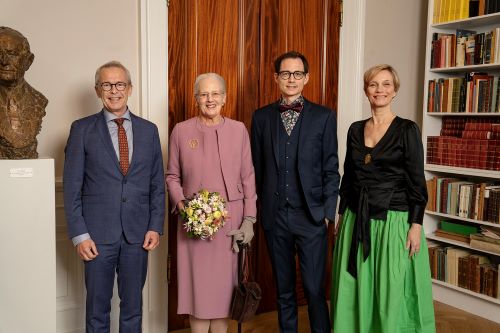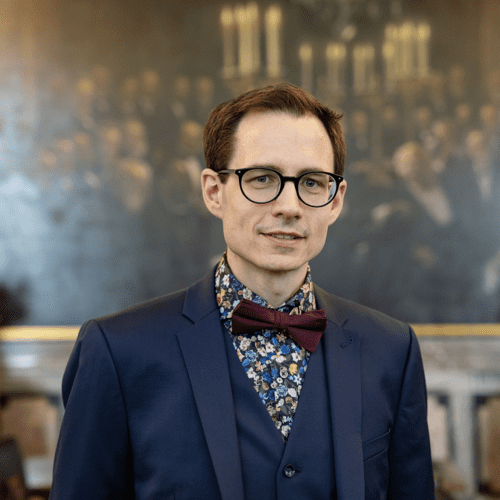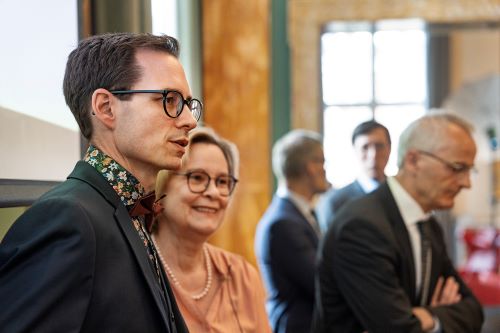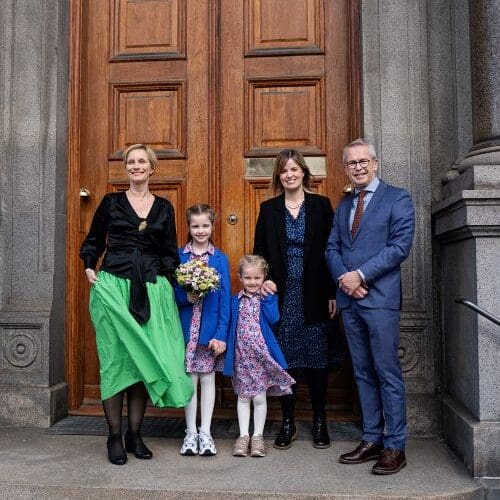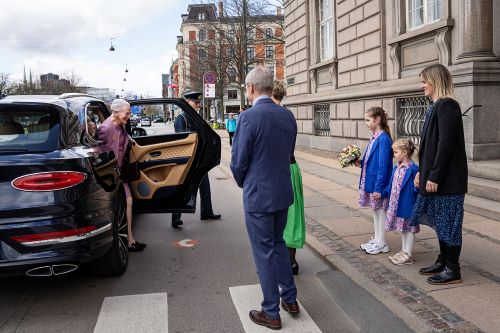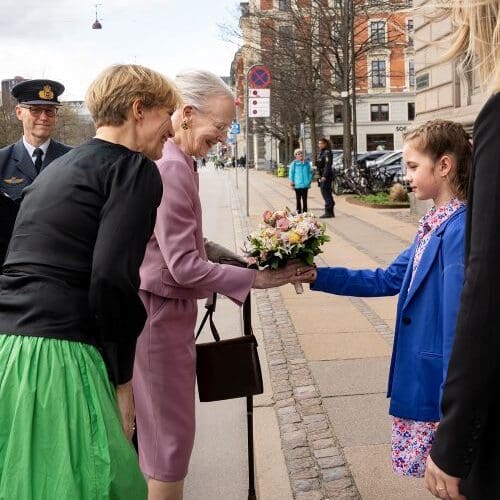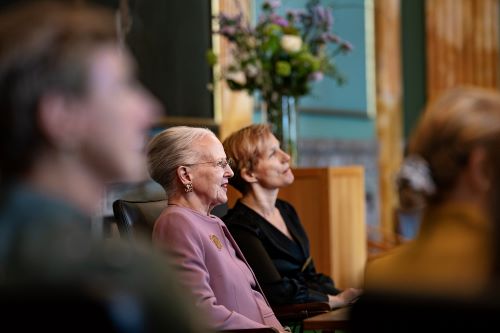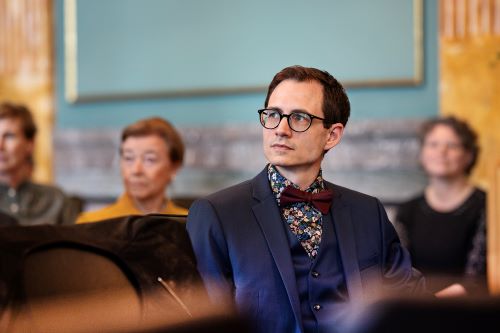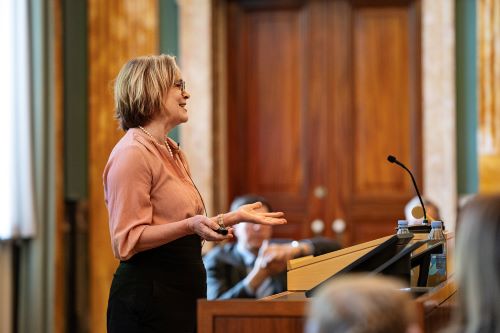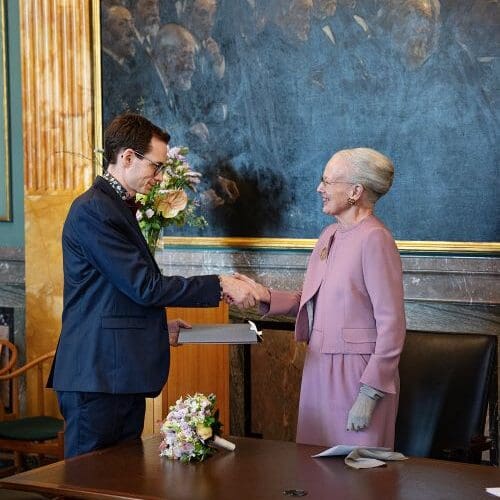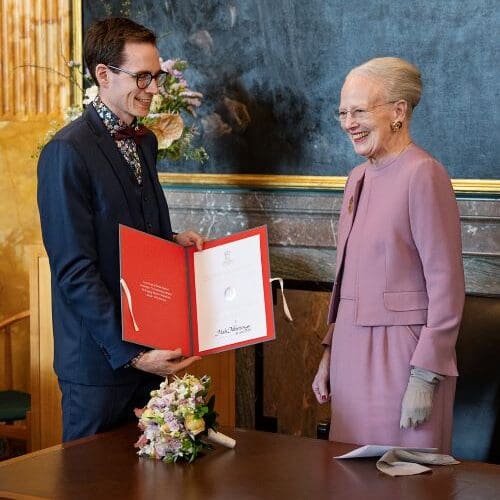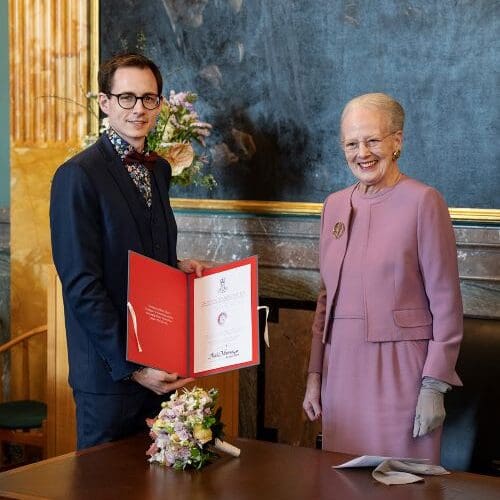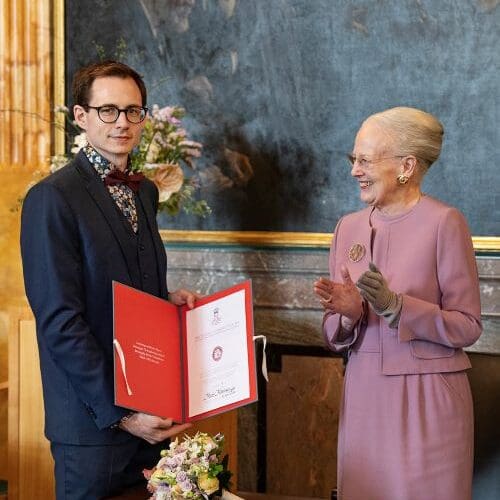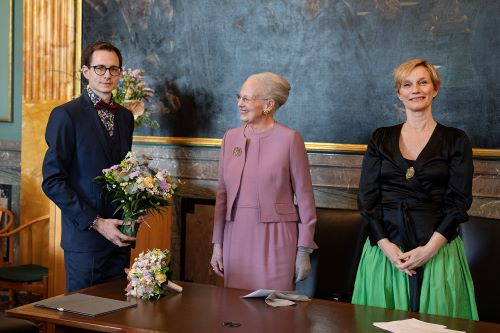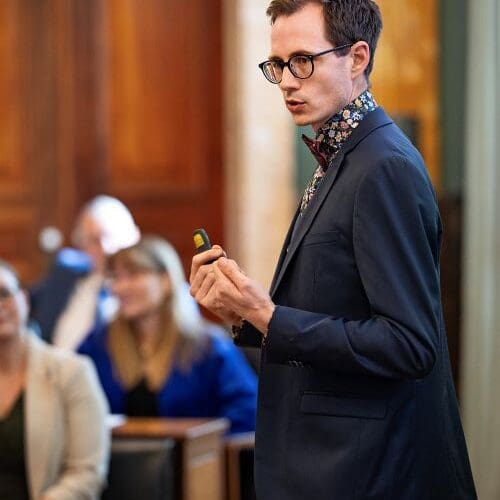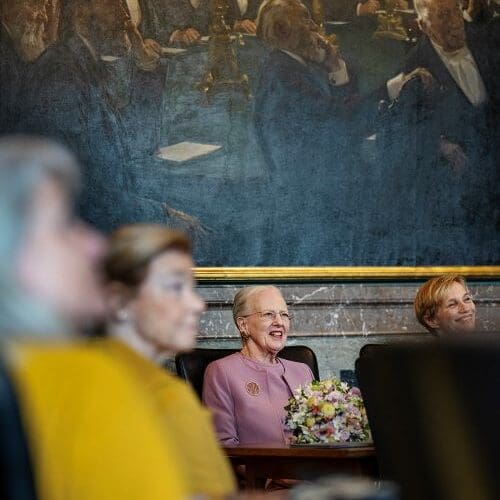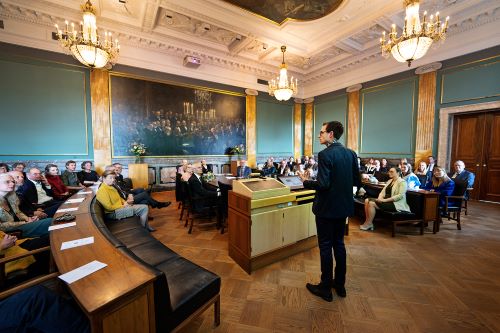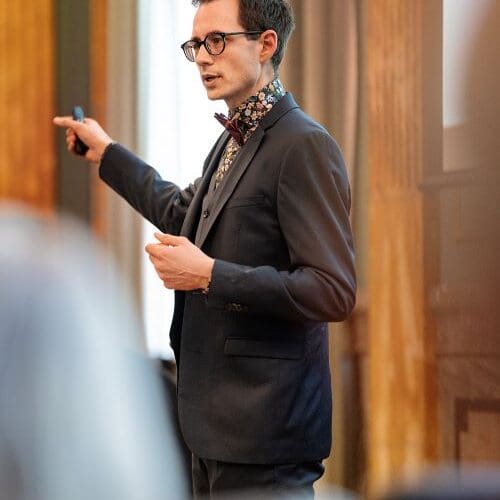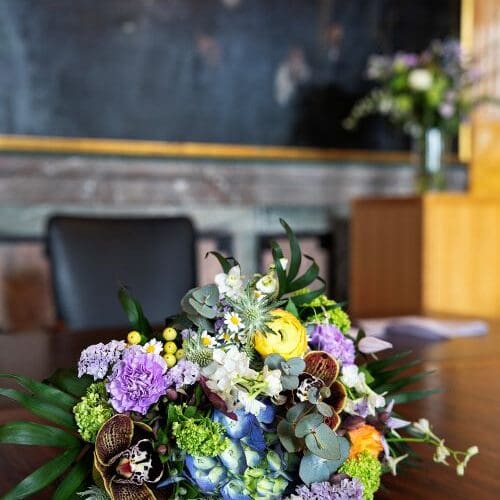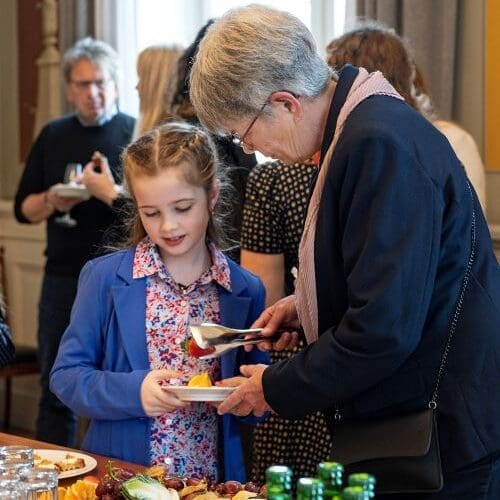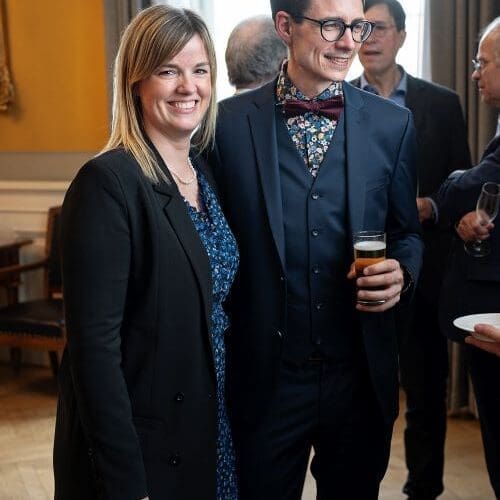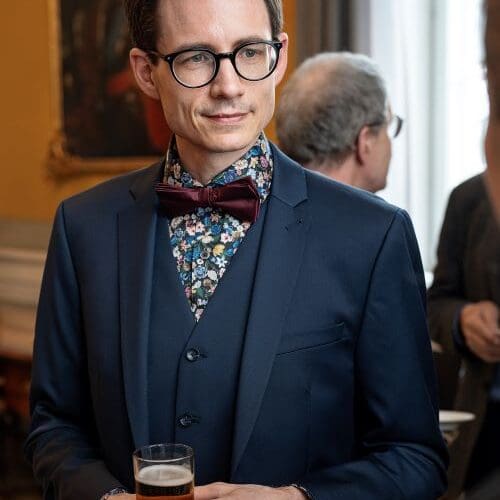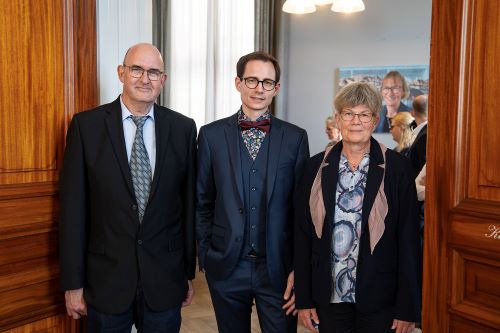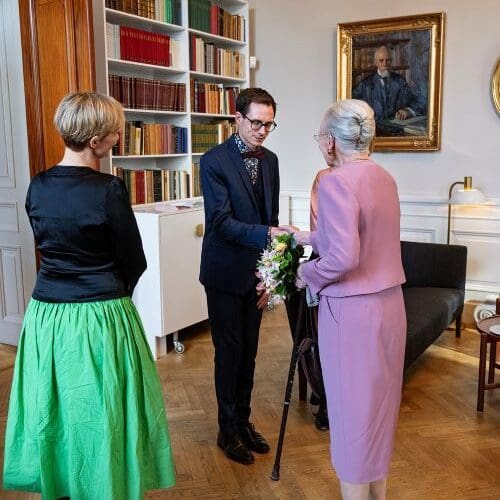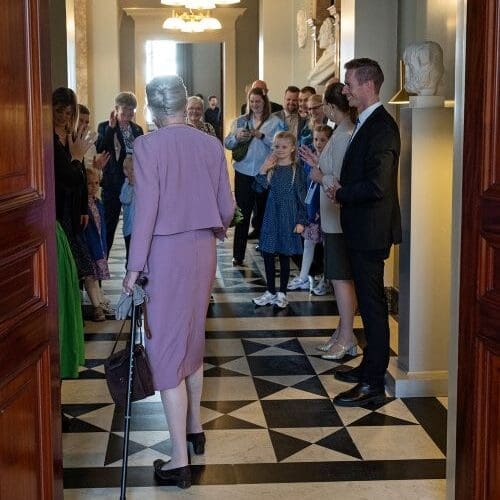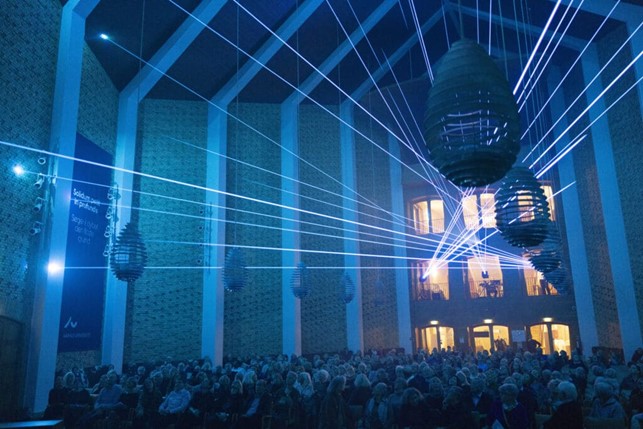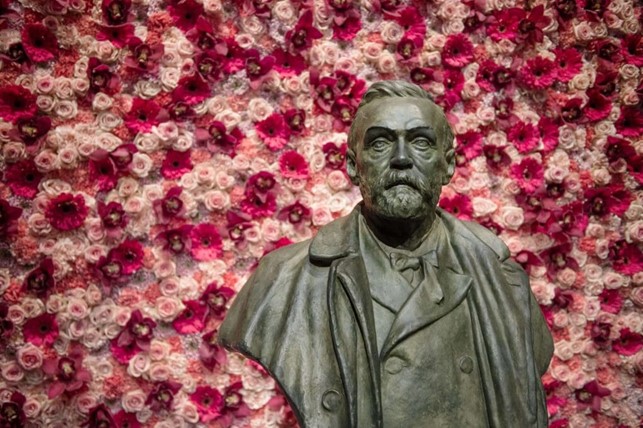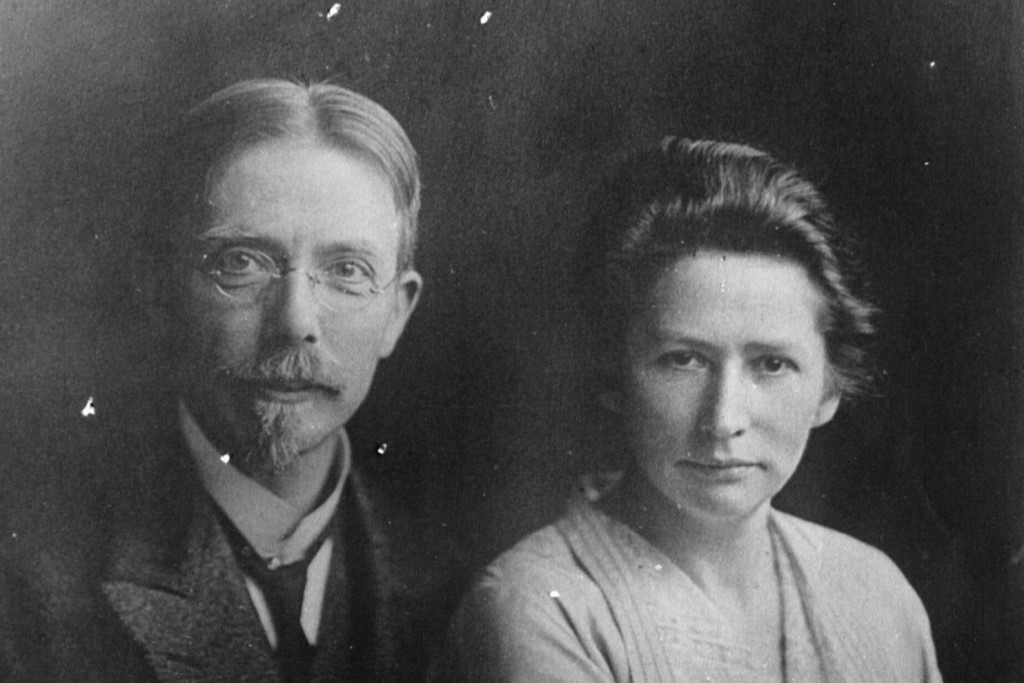Queen Margrethe II’s Science Award 2024
The Queen’s Science Award given to a civil engineer and a corona scientist
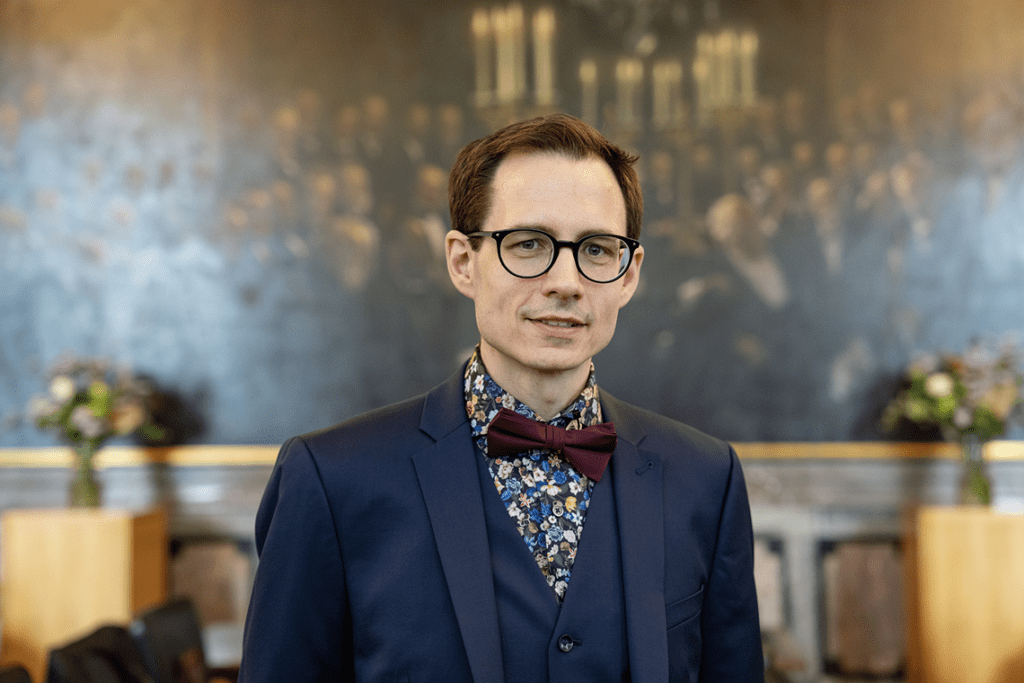
On 10 April 2024 research group leader and Professor Mads Albertsen, Aalborg University received Queen Margrethe II’s Science Award at the Royal Academy. President Marie Louise Nosch took the opportunity to pay tribute to the researchers who – together with the recipient – have played a crucial role in Denmark’s handling of the COVID-19 pandemic. Read her speech and view the photo gallery.
The Royal Academy’s Old Meeting Hall is filled to the brim on Wednesday afternoon but the high-ceilinged room was conspicuously quiet. The audience is awaiting the arrival of H.M. Queen Margrethe.
The camera shutters and flashes from journalists and photographers in the adjacent room break the silence in an instant. Everyone rises to their feet, including this year’s recipient, Mads Albertsen.
Science continually surprises us
“It is a great honour to welcome you all here today for the presentation of H.M. Margrethe II’s Science Award,” begins Royal Academy president Marie Louise Nosch from the podium.
After giving H.M. the Queen and Professor Albertsen a warm welcome, she continues with a little anecdote to give the day a unique perspective:
“More than 300 years ago one of the world’s first modern chemists, Robert Boyle, recorded some of his thoughts on the potential of science in an ultimate to-do list describing his hopes in terms of what science could achieve. Included among the various ideas he presented were prolonging life; recovering youth – at least some signs of it, like new teeth and hair colour; the art of flying; a ship no winds could ever sink it; an eternal flame; the ability to cure wounds and disease from a distance, or at least with the help of transplants.
President Nosch looks out at the audience. Several people are smiling at the thought of how apt Boyle’s inventions are, some of them slightly comical. She continues:
“Today is proof of how far science has come since then. We have long since ticked off most, if not all, of the items on Boyle’s list. Science has fulfilled his dreams and then some, continuing to do so for us today.
Nosch smiles when her gaze falls on a select few people in the audience.
“During the COVID-19 pandemic science and the researchers behind it – including today’s winner, Mads Albertsen – solved some of society’s most pressing problems by rapidly providing detection methods, vaccines and evidence-based information for decision makers and the general public. Several of these corona heroes are in this room today. On behalf of the Royal Danish Academy of Sciences and Letters, I would like to take this opportunity to express an extra warm thank you to Lone Simonsen, Bente Klarlund, Susanne Ditlevsen, Henrik Ullum, Thyra Grove Krause, Kåre Mølbak, Viggo Andreasen, Camilla Holten Møller and Mads Albertsen. We of course also extend our gratitude to those who could not be present today. Thank you for the major effort that you all put into pulling us out of a historically significant time of crisis. And for reminding us that the common good is inextricably linked to our continued research, exploration and curiosity,” concludes Nosch.
A blessing in disguise
At this point Albertsen has long since returned to what he is most passionate about, which is using DNA technology to study the imperceptible diversity of bacteria. According to Albertsen, however, it was in fact this interest that allowed him and his research team to step in almost immediately during the first year of the corona pandemic.
The day after receiving the award Professor Albertsen wrote the following on social media: “When the COVID-19 pandemic hit, my team had just built a large laboratory to perform microbial DNA sequencing in connection with a mapping of Denmark’s bacteria in Microflora Danica [ongoing research project]. This meant that the lab was already ready for us to step in and help with the important task of sequencing the COVID-19 virus”.
He also once again mentions how amazing the beginning of 2024, where he received the Elite Research Award and the Queen’s Science Award, was for him as a researcher and a person, reiterating that he is very honoured and proud.
Research is a team sport
Amid the celebration Albertsen did not forget the importance of mentioning his fellow researchers, stating:
“It’s also important for me to emphasise that there are many people with whom I must share this honour. Especially with my colleagues and students at the Department of Chemistry and Bioscience, Aalborg University. Research is a team effort so the recognition I am receiving is just as much yours,” insisted Albertsen, who also thanked, for example his partners in the business community, the authorities and other Danish and foreign universities”.
Read more about Albertsen’s research in the press release for the award ceremony. View the picture gallery from 10 April.
